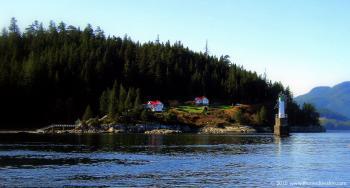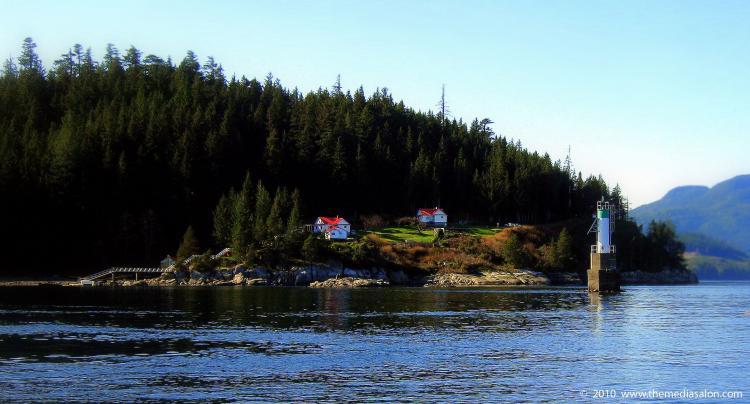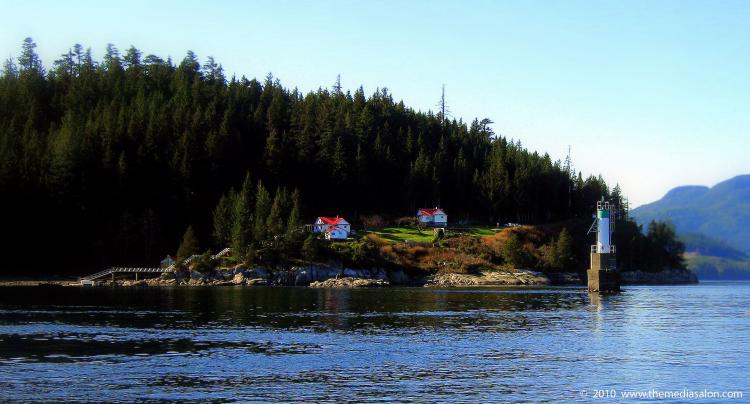The fight to preserve Canada’s staffed lighthouses, which began almost three decades ago, took on new momentum after keepers learned last September that the government was planning to fully automate the country’s remaining manned light stations.
That news was enough to prompt Steve Bergh, who has been a keeper at Chatham Point light station on northeastern Vancouver Island for the past 20 years, to cancel plans to retire in order to throw his weight behind efforts to prevent the move.
“I felt a responsibility to the users,” says Bergh, also president of B.C. Lightkeepers Local 20232.
After receiving a barrage of letters from both lighthouse advocates and user groups such as commercial fishery, mariner, and aviation organizations, Fisheries and Oceans Canada (DFO) put the decision to de-staff on hold pending a review.
Fisheries and Oceans Minister Gail Shea has asked a Senate committee to make recommendations regarding the staffed lighthouses on both coasts—27 in B.C. and 24 in Newfoundland and Labrador.
“Concerns raised regarding additional services provided by lightkeepers have been brought to my attention by a variety of stakeholders,” Shea said in a statement.
Canada began replacing lightkeepers with automated navigational aids in the early 1970s. The last big push to de-staff the country’s remaining manned stations occurred in the mid-1990s. However, the plan was abandoned after a public outcry.
Vital Service
The government maintains that keepers are obsolete in these days of automated weather readers, foghorns, and other high-tech navigational aids, and that automated stations are just as effective as having a human presence.
But keepers argue that they provide a multitude of vital services that are impossible with automation, including issuing immediate weather updates to aviators and mariners, relaying warnings and distress calls, reporting suspicious vessels, aiding in search and rescue, and in some cases literally saving lives.
“Many times in my 20 years here we’ve been instrumental in keeping boats afloat, pulling skin divers out of the water that had drifted off the shore and into the shipping channel, and providing emergency first aid to people who had injured themselves on boats,” says Bergh.
“We also monitor the high-frequency radio on all emergency frequencies and have heard distress calls that were not picked up by the coastguard radio station. And we liaise with other federal and provincial departments.”
These and other duties are outlined in the Canadian Coast Guard’s job description for keepers, Bergh says, adding that “most if not all [of B.C.’s] light stations have been active in search and rescue and other means such as spotting flares or assisting search and rescue resources.”
Shea says aids to navigation at unmanned stations are highly reliable and that “evidence has shown that automated light stations have not compromised mariner safety and can deliver a high level of service.”
But supporters of staffed lighthouses have noted that automated aids to navigation can be unpredictable. According to Barry MacDonald, president of the Nova Scotia Lighthouse Preservation Society, failures are common.
“If you talk to the users of this stuff, the foghorns and lights do break down on a regular or semi-regular basis.”
B.C. and Newfoundland Unique
On the rugged west coast in particular, says MacDonald, lightkeepers play a crucial role.
“You’ve got vast stretches of coastline, particularly on the western side of Vancouver Island and indeed in the Inside Passage—there’s just no human presence there except for the lightkeepers. They’re the eyes and ears of the coast.”
The same holds true for the remote coastline of Newfoundland, he says, the difference being that Newfoundland doesn’t have the volume of air traffic found on the west coast.
Charlie Dominaux, captain of the MV Arethusa, a ferry that carries more than 10,000 people a year between St-Pierre-Miquelon and Fortune Bay in Newfoundland, told Lighthouse News that he relies on lightkeepers to let him know if the entrance to the bay area is safe because the weather is often worse than that forecasted by Environment Canada.
“Based on their information, I’m staying home, or I go. I’m carrying precious cargo. I don’t want to take chances, and I’m sure the passengers don’t want me to take chances. Without those lightkeepers I have nothing,” he said.
While current figures on the cost of staffed lighthouses are unavailable because lighthouse budgets cross several ministries, according to the Victoria Times Colonist, a DFO marine program’s national performance report stated that staffing lighthouses cost the federal government $24.5 million between 1999 and 2003.
Manned lighthouses have been phased out in most of Europe and the United States. However, some Central and South American countries including Chile are expanding the number of light stations that are staffed.
In announcing the review, Shea said B.C. and Newfoundland “are uniquely situated as Canada’s eastern- and western-most provinces and therefore face unique challenges. As such, they must be approached from that perspective.”
She added that if the review determines that “a staffed presence is the only way to ensure the delivery of services, then this option will receive full consideration.”
The Senate committee has been hearing from a variety of groups including lightkeepers, recreational boaters, commercial shippers and fishers, business and community interests, as well as Canadians at large.
Bergh, who has worked as a lightkeeper for 27 years, says all the senators have to do is read the letters sent in by lighthouse supporters and users to see that keepers provide an essential service.
“If the senators actually study the letters that have been written by the associations and users and the airplane companies, you would think it would be a fairly easy decision for them.”







